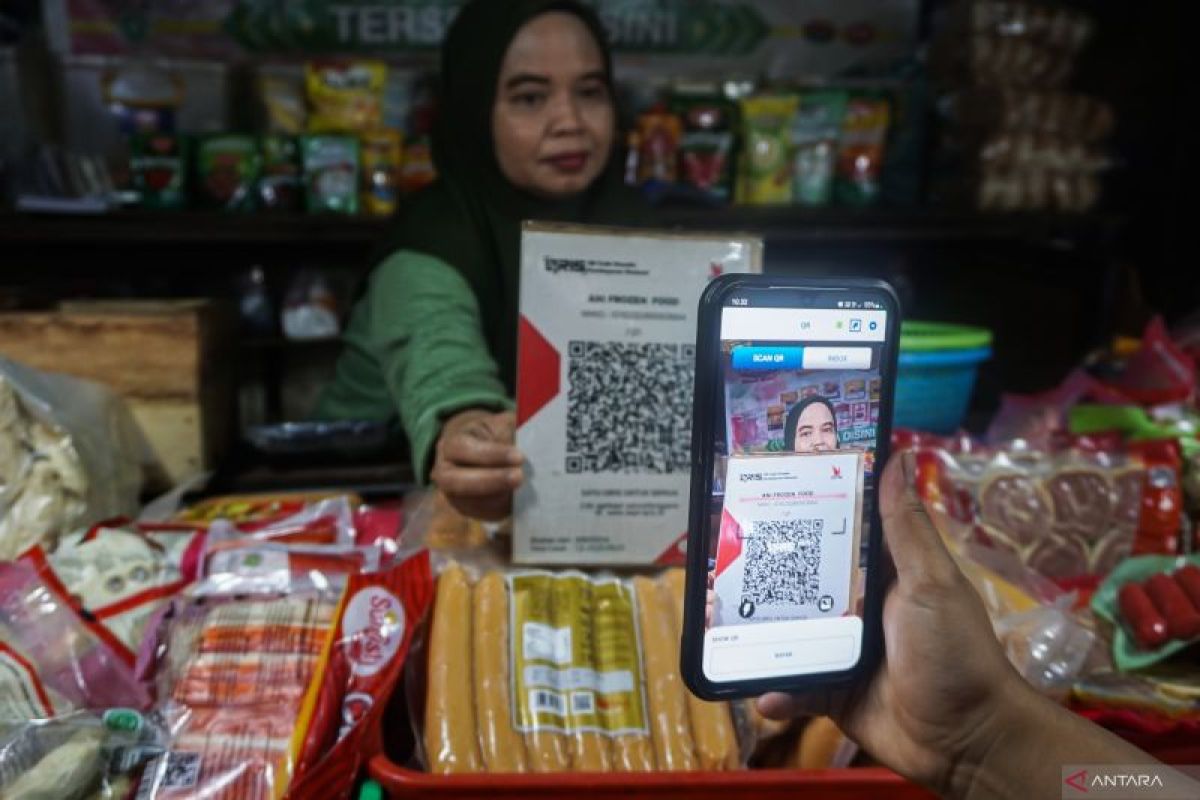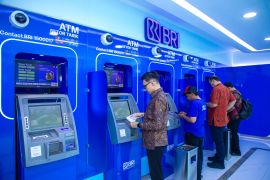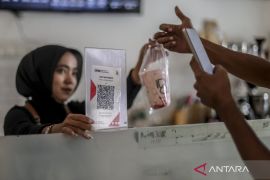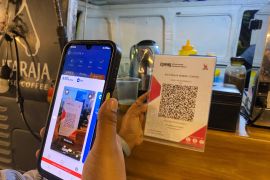"Thank God, QRIS saved Indonesia from COVID-19," he remarked at the "Bank Indonesia Together with the Community (Birama)" event in Jakarta.
He said that during the pandemic, QRIS facilitated contactless transactions, thereby curbing the spread of COVID-19 and ensuring the economy's continued functioning.
QRIS was first launched by the central bank on August 17, 2019. Parties involved in using QR Codes for payments were required to standardize their codes in accordance with QRIS guidelines by December 31 of the same year.
Warjiyo said that implementing QRIS as a payment model was part of BI's efforts to advance digitization in Indonesia's payment system. QRIS aligns with the Indonesian Payment System Blueprint (BSPI) 2025.
Besides easing daily transactions, QRIS also helped distribute government social assistance to communities in various regions of Indonesia, he informed.
"The distribution of social assistance throughout Indonesia uses QRIS and electronification," he added.
The implementation of BI-FAST is also considered a pivotal step in digitizing the payment system, which shielded Indonesia during the pandemic crisis.
BI-FAST, as a retail payment system infrastructure, enables interbank transfers at lower and safer costs.
Warjiyo highlighted the significance of BI-FAST for the community, particularly micro, small, and medium enterprises (MSMEs).
As of October 2023, QRIS transaction volume reached an impressive 1.596 billion, according to data from the central bank.
This was accompanied by a substantial nominal growth in QRIS transactions, which surged by 186.08 percent year-on-year (yoy) to reach Rp24.97 trillion.
The number of QRIS users was recorded at 43.44 million, while merchants stood at 29.63 million, most of them were MSMEs.
BI is actively collaborating with the industry and relevant stakeholders to continuously enhance education and literacy regarding the security of QRIS transactions. Additionally, it is strengthening supervision, particularly in fulfilling the "Know Your Merchant" aspect and monitoring transactions.
Strengthening the infrastructure supporting the QRIS ecosystem is also being undertaken to mitigate the risk of misuse or fraud.
Warjiyo previously shared plans to expand QRIS to India, Japan, China, and the United Arab Emirates in 2024.
Related news: QRIS cross-border payment system supports tourism: CORE Indonesia
Related news: QRIS: BI to waive fee for transactions below Rp100,000
Translator: Bayu Saputra, Katriana
Editor: Anton Santoso
Copyright © ANTARA 2023












